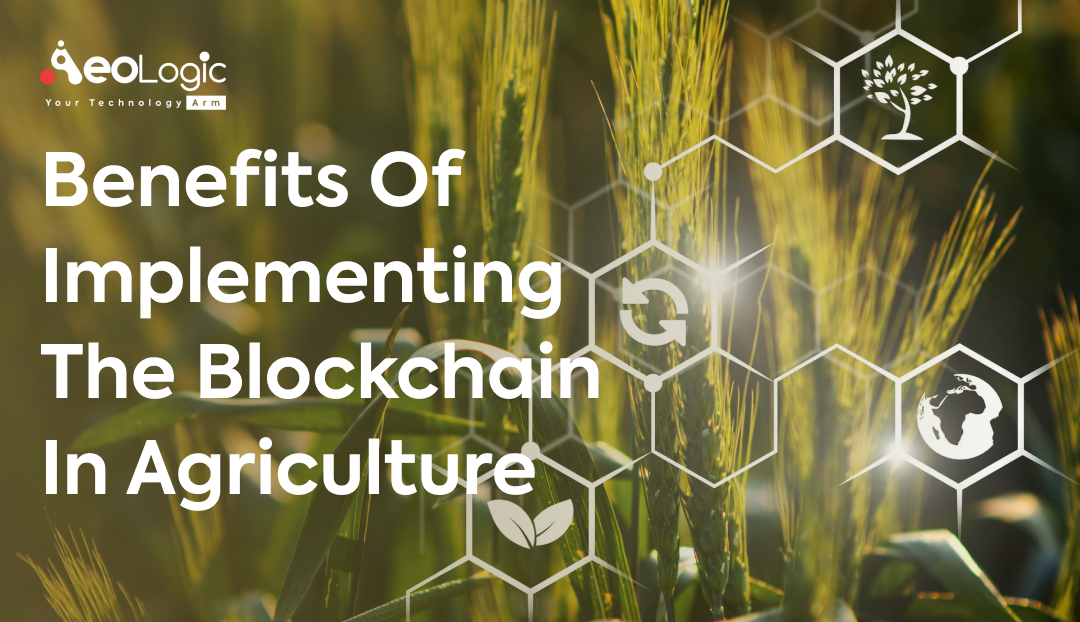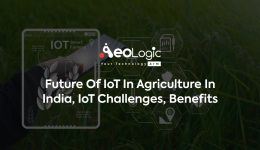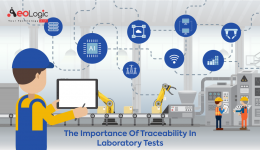Introduction
Agriculture represents a significant source of employment and contribution to the economy of numerous countries around the globe. This would bear more effective product systems to meet the requirements of a growing population. The sector has endured numerous changes with the rise of new technologies, and there is still a lot of openings to apply innovative results that go hand in hand with Industry 4.0. For example, blockchain technology. There are several benefits of implementing the blockchain in agriculture. A blockchain is a large record of data that resembles a ledger that is participated among several users or nodes to securely register inflexible transactions.
There are multitudinous use cases of this technology for its traceability and cost- effectiveness capabilities. Over the times, numerous blockchain platforms have been developed and the protocol known as EOSIO has stood up because of its versatility and smart contracts execution capacity.
Also read: How Internet of Things (IoT) Benefits the Agriculture Industry?
Benefits of Implementing the Blockchain in Agriculture: The Revolution
The benefits of implementing the Blockchain in agriculture or blockchain technology can track all types of information about plants, for instance, seed quality, crop growth, and indeed the travel of a plant after it leaves the farm. This data can ameliorate supply chain translucency and exclude enterprises associated with illegal and unethical operations. They can also help track impurity or other issues back to their source in the case of a recall. The major end of these technologies is sustainability and food security.
Consumers can make correct purchasing opinions when they’ve this quantum of openness. They constantly use this information to award growers and producers who apply good agriculture ways.
How to Apply Blockchain Technology in Agriculture?
There are several blockchain uses in the agrarian sector, and more are being developed grounded on recent technological advancements. To dissect the crucial uses of blockchain, it’s doable to divide it into four broad orders:
- Intelligent Farming
- Food Supply Chain
- Insurance for Agriculture
- Agricultural Product Transactions
- Smart Agriculture
The approach of employing multitudinous current specialized improvements to increase the effectiveness and responsibility of the agriculture process is known as smart agriculture or smart farming. It incorporates information and communication technology (ICT), the internet of things (IoT), multiple detectors, machine learning technologies, and multitudinous data collecting and analysis outfit similar as unmanned aerial vehicles. The connection between smart technology and agriculture is still new, but with the right security system in place, it can make operations much easier to carry out.
Benefits of Implementing Blockchain in Agriculture
It Increases Effectiveness and Traceability Across the Product Chain:
The benefits of implementing the blockchain in agriculture may solve information operation problems in real-time across the product and supply chains of agrarian products. As mentioned above, a blockchain provides an inflexible and transparent registry of data. This registry represents a more effective, flawless, and easy-to-use option to cover information of the process and ameliorate traceability across the supply chain. Also, deploying this technology allows keeping precise records of information about the origin of the products, manufacturing date, and details about the producer. Blockchain increases security and trustiness among parties, which may come precious when exporting products. For case, blockchain can quickly help when recalling products in the case of a sanitary alert or to maintain traceability of the use of agrochemicals or fertilisers.
Italian food company Barilla is enforcing blockchain to guarantee the origin, quality of the product and raw materials, and to certify the newness of basil used in some of their products.
Also, Walmart started enforcing blockchain to digitize the traceability of perishable goods across the supply chain. Therefore, helping sanitary authorities to reply briskly in case of detecting poisoning in a batch of products.
It Improves Product Processes:
Technology has a positive impact on farming effectiveness and productivity. For illustration, data gathered by detectors can be stored in a blockchain and used for specific conduct. Measurable data include the temperature of the soil, the use of agrochemicals or fertilisers, water availability, and rainfall conditions.
By having a clearer picture of generally changeable rainfall conditions, growers can prepare themselves with expectation to help them increase the survival of crops, ameliorate pricing tactics, and thus influence employment in the sector.
It Increases Translucency For Final Consumers:
There’s a growing demand for consumers to know the origin of the products they buy. This has opened a window of occasion for blockchain technology. In a largely competitive field similar as farming goods (coffee, rice, beans), final consumers value access to information about the product process, to whom they’re buying, and the overall quality of the product.
For example, supermarket chain Carrefour and Nestlé have partnered to apply blockchain into a purée brand in France. By using their smartphone, consumers can overlook a QR code in the packaging and access to traceability information from product to the store, including the date of product, quality control parameters, storehouse times, and position of storages. Carrefour also started enforcing blockchain for other products, for example, meat, milk, and fruits.
It Improves the Operation of Farm Finances
Managing financial, account, and executive information may be challenging for the agrarian sector. This may also carry difficulties when defining competitive prices for the products. By enforcing blockchain, the operation process of this data can be more transparent and accessible. As well as effective and in real-time. The capabilities of blockchain to keep inflexible registries may come an supporter of growers.
Also read: How Technology Is Boosting the Agriculture Industry
Conclusion
While blockchain technology isn’t yet finalised. The sheer volume of benefits gained from this medium in a veritably short period is amazing. Blockchain can fully transfigure the agrarian sector if duly stationed.
As technology advancements continue, the responsibility and effectiveness of this system are likely to increase. The use of blockchain in the agriculture and food assiduity has helped the growers and people involved with the process. Blockchain and agriculture now come hand in hand. The operation of blockchain in the agrarian sector has a sustainable business and works toward the reduction of waste and smooth future transactions sans fraud.
Get in touch with us to know more about Blockchain technology.






